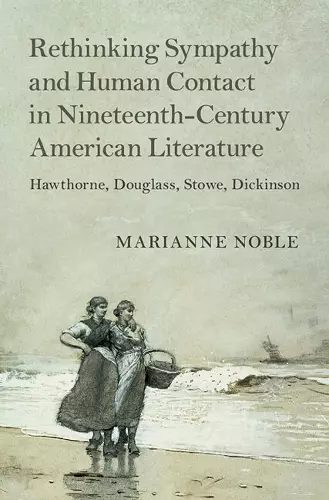Rethinking Sympathy and Human Contact in Nineteenth-Century American Literature
Hawthorne, Douglass, Stowe, Dickinson
Format:Hardback
Publisher:Cambridge University Press
Published:28th Mar '19
Currently unavailable, and unfortunately no date known when it will be back

Analyzes the evolution of antebellum literary explorations of sympathy and human contact in the 1850s and 1860s.
In accessible and impassioned discussions of literature and philosophy, this book reveals a surprising approach to the intractable problem of human contact. Nathaniel Hawthorne, Frederick Douglass, Harriet Beecher Stowe, and Emily Dickinson rethought the nature of human contact, turning away from transcendentalist approaches and towards sympathetic ones. Their second and third works portray social masks as insufficient, not deceptive, and thus human contact requires not violent striking through the mask but benevolent skepticism towards persons. They imagine that people feel real in a real world with real others when they care for others for the other's sake and when they make caring relationships the cornerstone of their own being. Grounded in philosophies of sympathy - including Adam Smith and J. G. Herder - and relational psychology - Winnicott and Benjamin - Rethinking Sympathy and Human Contact in Nineteenth-Century American Literature shows that antebellum literature rejects individualist definitions of the human and locates the antidote to human disconnection in sympathy.
'Rethinking Sympathy and Human Contact joins a wider and important conversation about the ways in which literature imagines togetherness and the functions of sentiments, emotions, and affects within these emplotments.' Thomas Constantinesco, The Emily Dickinson International Society
ISBN: 9781108481335
Dimensions: 235mm x 157mm x 20mm
Weight: 640g
306 pages